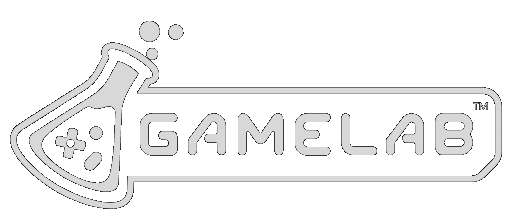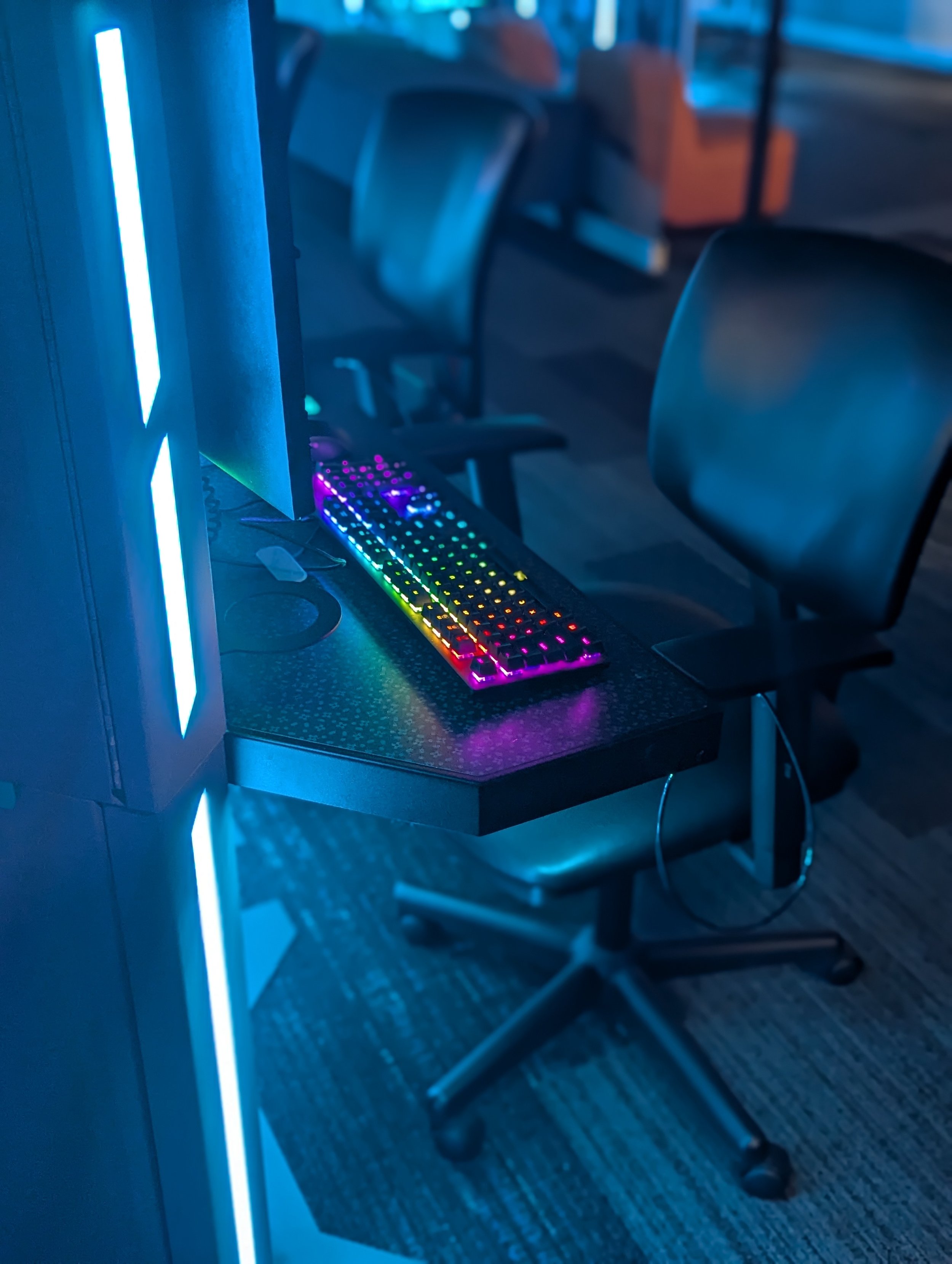
Selecting the Right Vendor for Your Gaming Lounge
As gaming continues to evolve into a core feature of student life on college campuses, institutions are increasingly recognizing the value of dedicated gaming facilities. These spaces serve as powerful community-building tools, bringing together diverse student populations around a shared interest.
Creating truly impactful gaming environments requires balancing both social gaming and esports components. While formal esports programs attract significant attention, social gaming engages a much larger portion of the student population. Finding a partner who understands this crucial distinction is essential for maximizing your facility's impact across the entire student community.
However, developing an effective gaming lounge requires specialized knowledge across multiple domains—from space design and technology selection to ongoing maintenance and programming. Selecting the right partner to guide this process can make the difference between a thriving campus hub and an underutilized investment. Here are key considerations when evaluating potential vendors for your gaming facility project.
Understanding of Social Gaming vs. Esports
A knowledgeable partner recognizes that while competitive esports receives significant attention, social gaming represents the primary mode of engagement for most students. Your ideal vendor should emphasize solutions that accommodate casual players alongside competitive ones, with the largest percentage of square footage dedicated to social gaming experiences.
When designing a campus gaming facility, the right balance is critical. Though esports attracts media coverage and creates exciting competitive opportunities, social gaming engages a significantly larger portion of the student population. Despite this reality, many facilities allocate disproportionate resources to competitive play areas, ultimately limiting their community-building potential.
Look for partners who discuss the importance of cooperative gaming areas, splitscreen options, and spectator-friendly configurations. These elements create low-barrier entry points for students who may not identify as "serious gamers" but still want to participate in the community. The right vendor will help you design spaces where casual gamers feel welcome while still supporting competitive players with appropriate infrastructure.
Expertise in Inclusive Space Design
Gaming facilities should welcome students of all backgrounds and experience levels. Evaluate whether potential partners demonstrate understanding of key design principles that promote inclusivity and engagement:
Strategic sightlines that allow newcomers to immediately see available activities upon entering
Audio solutions that encourage social interaction rather than isolation
Varied seating arrangements that accommodate both active players and spectators
Accessible configurations that support different play styles and skill levels
The right partner should approach space planning through a community-building lens rather than purely technical considerations. They should discuss how design elements like furniture selection, lighting, and traffic flow affect student interactions and comfort levels. Experienced vendors understand that physical space design directly impacts community formation and student engagement, and can articulate how their design approaches foster an inclusive environment.
Your ideal partner will also prioritize designing for all students—not just existing gamers—with layouts that invite exploration and participation regardless of gaming experience.
Technical Knowledge and Equipment Selection
Gaming technology evolves rapidly, and equipment suitable for home use often fails to withstand the demands of high-traffic campus environments. Your partner should demonstrate deep knowledge of commercial-grade gaming hardware and software, with recommendations tailored to institutional needs rather than consumer preferences.
Look for vendors who offer purpose-built solutions specifically designed for educational settings rather than repurposed consumer products. High-traffic campus environments require equipment that can withstand thousands of hours of use while maintaining performance and reliability. The best partners will discuss components like gaming-specific furniture, specialized PC builds with institutional features, and custom controller solutions designed for durability in public settings.
The right vendor will discuss factors such as durability, serviceability, and update processes alongside performance specifications. They should also address compatibility issues across different systems and explain how their proposed solution accommodates future technological developments.
Comprehensive Maintenance Planning
Perhaps the most critical differentiator between vendors is their approach to long-term maintenance. Many gaming facilities experience diminishing usage after initial excitement fades because equipment begins to fail or software becomes outdated. A qualified partner will present a detailed maintenance strategy covering:
Regular equipment testing and preventative maintenance
Controller replacement cycles
Software update processes
Game library management and expansion
Technical support procedures for operational issues
The most effective partners offer proactive maintenance solutions rather than reactive troubleshooting. Look for vendors who provide dedicated support teams with higher education gaming experience, regular on-site maintenance visits, and comprehensive remote monitoring capabilities. The best maintenance plans include not just hardware repairs but also game library management to ensure your facility consistently offers the latest titles that interest your student population.
Beware of partners who treat maintenance as an afterthought or separate service. The most successful gaming facilities integrate ongoing support into their foundational planning.
Implementation Experience and Project Management
Developing a gaming facility involves coordinating multiple stakeholders, from facilities management and IT departments to student affairs and academic units. Your partner should demonstrate experience managing similar projects within higher education environments, with a clear process for:
Needs assessment and stakeholder engagement
Space planning and design development
Equipment procurement and installation
Staff training and operational handoff
Post-opening evaluation and adjustment
The best implementation partners offer turnkey solutions that handle every aspect of the process, from initial concept through day-to-day operations. They should provide comprehensive project management with a single point of contact responsible for coordinating all aspects of implementation. This approach ensures consistent quality and minimizes the burden on institutional staff who may lack gaming-specific expertise.
Request case studies or references from previous campus installations to evaluate the vendor's ability to navigate institutional complexities while delivering on project goals. Partners with proven higher education experience understand the unique challenges of campus environments and can help you avoid common pitfalls.
Conclusion: Seeking Comprehensive Solutions
While it may be tempting to piece together gaming facilities through multiple vendors or internal resources, this approach often creates unnecessary complications and long-term operational challenges. The most successful campus gaming spaces typically emerge from partnerships with specialized providers who understand both the technical requirements of gaming equipment and the community-building objectives of higher education institutions.
The GameLab difference lies in our comprehensive approach that addresses every aspect of gaming facility development and operation. We combine technical expertise with a thorough understanding of campus dynamics. Our turnkey solutions integrate space design, technology deployment, and ongoing maintenance into a seamless process that delivers immediate impact and sustainable value.
By selecting a partner with demonstrated expertise in designing, implementing, and maintaining gaming facilities, institutions can create spaces that genuinely enhance campus life. The right gaming lounge does more than entertain—it fosters connections across cultural, social, and gender boundaries while providing students with a welcoming space to build meaningful relationships.
When evaluating potential partners, prioritize those offering comprehensive, turnkey solutions that address both immediate implementation needs and long-term operational success. This approach ensures your gaming facility will continue engaging students and building community long after the initial excitement of opening day.
Contact GameLab today to discover how our end-to-end gaming solutions can transform your campus experience and create lasting value for your institution.






